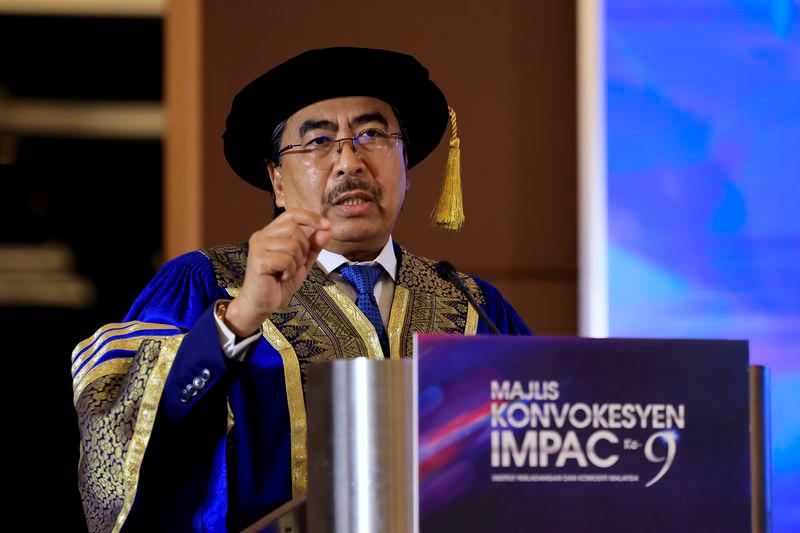PUTRAJAYA: Industry players in the plantation and agri-commodity sectors have been urged to take an active role in ensuring that graduates of the Institute of Malaysian Plantation and Commodities (IMPAC) successfully enter the job market and gain the practical experience needed to thrive in the industry.
Plantations and Commodities Minister Datuk Seri Johari Abdul Ghani said that the sector continues to face significant challenges, particularly its heavy reliance on foreign labour and the low participation of local workers, especially among the youth.
“If we were to experience a crisis like the COVID-19 pandemic again, the palm oil industry could suffer losses of RM20 to RM30 billion due to movement restrictions preventing the entry of foreign workers,” he said.
“We have to look at long-term solutions, that’s why if we look at many developed countries, they are very efficient and not too dependent on foreign workers,” he told reporters after attending the 9th IMPAC Convocation Ceremony involving 458 graduates here today.
In the upstream palm oil industry, local workers currently make up only 24 per cent of the workforce, while foreign workers account for 76 per cent.
Johari also proposed the establishment of an alumni network to track the employment status of IMPAC graduates, ensuring they secure relevant jobs in the industry or receive necessary support if they remain unemployed.
“If graduates are still without jobs, IMPAC should be informed so that we can submit their profiles to industries currently seeking foreign workers. If companies request approval to hire foreign workers, I will not approve it if they do not hire these boys (local graduates) to work.
He emphasised that while foreign workers may be assigned to 3D jobs (dirty, dangerous, and difficult), roles involving automation, artificial intelligence (AI), and mechanisation should be filled by local graduates, provided they receive the necessary training in these fields.
Earlier in his speech, Johari highlighted IMPAC’s crucial role in developing a skilled workforce for the agri-commodity sector by offering Technical and Vocational Education and Training (TVET) courses that guarantee job opportunities.
“Human capital development in the plantation and commodity sectors is vital to the industry’s sustainability and competitiveness. Through responsive, inclusive, and flexible TVET education and training, we can produce skilled professionals and future leaders capable of driving innovation, particularly in this high-value sector,” he said.
IMPAC, an institution under the Ministry of Plantations and Commodities (KPK), is responsible for leading and overseeing skills training courses and programs across various agency-run training centres.
These agencies include the Malaysian Palm Oil Board (MPOB), the Malaysian Rubber Board (LGM), the Malaysian Timber Industry Board (MTIB), the Malaysian Cocoa Board (LKM), the Malaysian Pepper Board (MPB), and the National Kenaf & Tobacco Board (LKTN).









